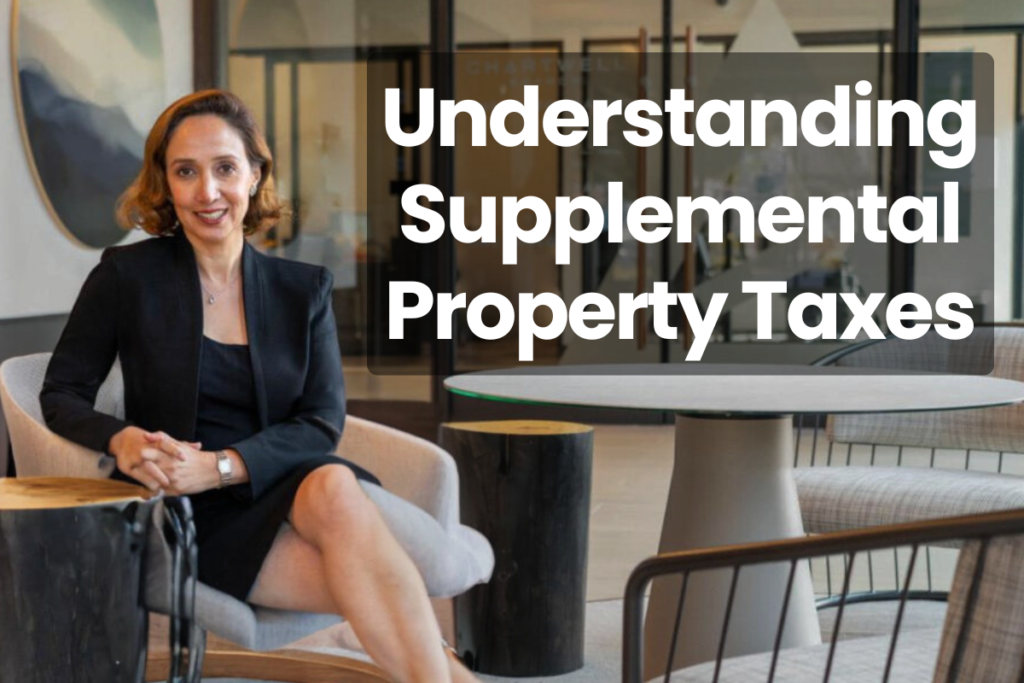
Supplemental Property Taxes can be a bit confusing, but we’re here to break it down for you in simple terms. These taxes are an additional charge that property owners may need to pay when there’s a change in ownership or new construction on the property. Here’s what you need to know:
Paying Your Supplemental Tax Bill
You can pay your Supplemental Tax Bill in two equal installments:
- If the bill is mailed between July and October:
• First Installment: Due when the bill is mailed; delinquent on December 10 of the same year.
• Second Installment: Delinquent on April 10 of the next year. - If the bill is mailed between November and June:
• First Installment: Due when the bill is mailed; delinquent on the last day of the month following the month the bill is mailed.
• Second Installment: Delinquent on the last day of the fourth calendar month following the first installment’s delinquency date.
Determining Your Tax Bill
Your supplemental tax bill is determined using a specific formula. The total supplemental assessment is prorated based on the number of months remaining until June 30th, the end of the tax year.
Proration Factor
The supplemental tax becomes effective the first day of the month following the change in ownership or completion of new construction. Here’s how it works:
• If the effective date is July 1: No supplemental assessment on the current tax roll. The entire supplemental assessment will be on the new tax roll reflecting the full cash value.
• If the effective date is not July 1: A table of factors is used to compute the supplemental assessment for the current tax roll.
Proration in Escrow
Supplemental Tax is Not Prorated in Escrow. Unlike your ordinary annual taxes, the supplemental tax is a one-time charge. It applies from the date you take ownership or complete construction until June 30th. The property owner is entirely responsible for this tax.
Source: First American Title
Know your home’s worth, click here.
Homes for sale in Carmel Valley click here.
Shirin Rezania Ramos | 858.345.0685 | www.shirinramos.com | Compass, DRE 0203379


